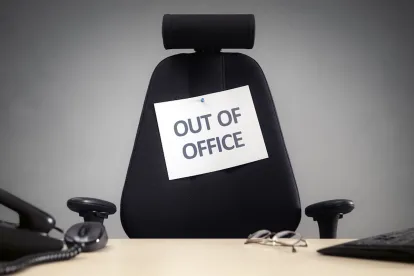Recently, Illinois became the third state to pass a mandatory paid time off law called the “Paid Leave for All Workers Act” (the “Act”), which grants employees a minimum of 40 hours of paid time off per year for any reason. Only Nevada and Maine provide similarly sweeping mandatory paid leave. Governor Pritzker has indicated he will sign the legislation. This new law, which would be effective January 1, 2024, will have a major impact on the landscape of paid leave in Illinois. It affects nearly everyone, its uses are unlimited, and it comes with new reporting and record-keeping requirements, as well as civil penalties for non-compliance. Though employers may provide more generous paid leave than the Act requires, the Act sets the new minimum standard for paid time off across the state.
Who Is Covered?
Virtually all employers will be required to provide leave under the Act, regardless of size or sector. Exempted employers include park districts organized under the Illinois Park District Code and school districts organized under the Illinois School Code. The Act also does not apply to employers that are “covered by a municipal or county ordinance that is in effect on the effective date of [the] Act that requires employers to give any form of paid leave to their employees, including paid sick leave or paid leave.” The Act’s language suggests that employers already covered by the Chicago Minimum Wage and Paid Sick Leave Ordinance or the Cook County Earned Sick Leave Ordinance may not need to provide the leave covered under the Act.
Employee coverage is similarly sweeping. Nearly all employees are covered, save for individuals covered by the federal Railroad Unemployment Insurance Act or Railway Labor Act, qualifying students working for their college or university, short-term employees working for institutions of higher education, and employees covered by collective bargaining agreements who are also working in the construction industry or working for employers that provide delivery, pickup, and transportation of parcels, documents, and freight.
Use and Accrual of Leave
The new law requires employers to provide all covered employees with 40 hours of paid leave per 12-month period, which can be used for any reason. Employees may accrue paid leave at a rate of one hour for every 40 hours worked, or the employer may elect to “front-load” the leave and provide the annual accrual to the employee at the start of the 12-month period. Exempt employees are deemed to work 40 hours per week for purposes of paid leave accrual unless their regular workweek is less than 40 hours, in which case their paid leave accrues based on that regular workweek. Paid leave hours will begin to accrue on the Act’s effective date (January 1, 2024) or the employee’s first day of employment, whichever is later. Employees may begin to use their paid leave 90 days following commencement of their employment. Paid leave time will carry over to the next year, but employers will not be required to provide more than 40 hours of paid leave per year. However, nothing in the Act limits an employer’s ability to provide more than 40 hours of paid leave if they choose.
Employees are able to determine how much paid leave they use. However, employers may set a reasonable minimum increment for the use of paid leave not to exceed two hours per day. An employer cannot require an employee to provide a reason for the leave, nor require the employee to provide documentation or certification to support the use of paid leave. Employers also cannot require an employee to find a replacement to cover their hours as a condition of taking paid leave. An employee may choose to use paid leave before using any other leave.
Employees must be paid their regular rate of pay while on paid leave, and employees paid through commission or tips must be paid at least the full minimum wage. Employers are not required to pay out unused paid leave upon separation, unless the paid leave hours are merged into the employer’s vacation or paid time off policy that requires pay out under other Illinois law.
Employee Notice Requirements
Employees must give their employer oral or written notice of their intent to take leave in accordance with the employer’s reasonable policy for providing notice. An employer’s notice policy may require seven days advance notice for a foreseeable leave, and notice as soon as possible for a non-foreseeable leave.
Employer Notice Requirements
Employers must post notice of the Act’s requirements in a conspicuous place where employee notices are typically posted, in addition to including an approved, written notice of the Act’s provisions in a written document for employees, such as an employee manual. The Illinois Department of Labor is responsible for releasing approved notices.
Reporting and Fines
Employers must keep records for every employee for a minimum of three years which documents hours worked, paid leave accrued, paid leave taken, and the remaining balance of paid leave. Upon request, employers must provide notice of the amount of paid leave an employee has accrued or used in accordance with the employer’s reasonable notification policy for paid leave. Penalties for non-compliance with any part of the Act are $2,500 per violation.
Use of Existing Paid Time Off Policies
Employers who already have paid leave policies that provide at least 40 hours of paid leave per 12-month period may not need to modify their policies. The Act is unclear as to whether (i) employers must modify their existing policies to permit leave to be used for any reason; (ii) existing policies must comport with the Act’s other requirements; and (iii) employers who are covered by municipal or county ordinances requiring a form of paid leave must comply with the Act’s other provisions. Upon Governor Pritzker’s signature, we will monitor the law and the Illinois Department of Labor’s issuance of additional guidance.




 />i
/>i

